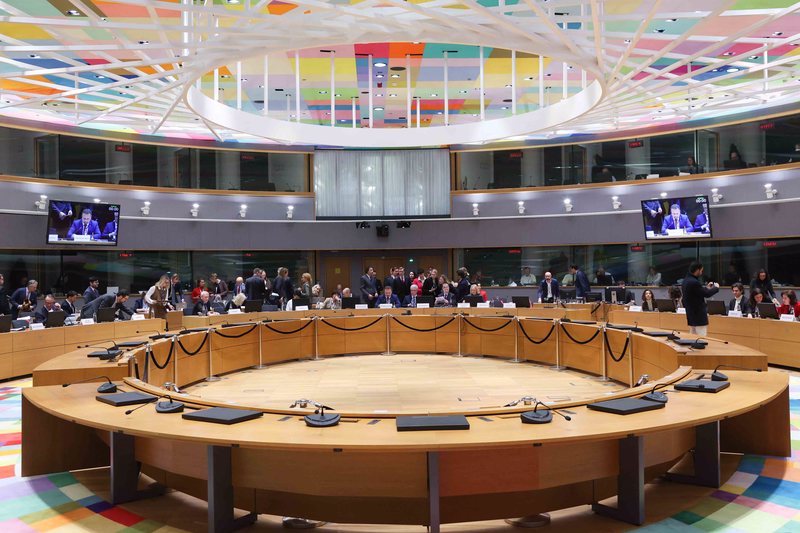The EPSCO Council took place on 08 December 2022. Ministers faced a particularly challenging agenda which allowed them to discuss a large range of issues concerning employment and social policy. Policy debates included family policies, the European Semester and the European Care strategy.
The proposal for a directive on improving working conditions in platform work was almost univocally welcomed by the Ministers. However, certain Member States felt that further negotiations were needed therefore either abstained or refused to support the majority of the Council.
The ministers unanimously voted for a general approachabout the directive on the protection of workers from the risks related to exposure to asbestos at work. Ministers took note of the progress reached regarding the directive on equal treatment and despite the majority, including Hungary, supported the proposal, failed to reach a general approach about the directive on improving working conditions in platform work.
The Council reached a political agreement on the Council recommendation on adequate minimum income ensuring active inclusion. Ministers adopted two Council recommendations (on early childhood and education, also on access to affordable high-quality long-term care) and approved two Council conclusions (on the inclusion of persons with disabilities in the labour market and on gender equality in disrupted economies); furthermore, the ministers were informed about the progress towards the adoption of the European Year of Skills 2023 resolution.

The debate related to family policies highlighted the need for additional efforts and mutual learning in order to respond to the demographic challenges and strengthen families as the precious nucleus of our European society. Hungary gave a comprehensive overview of its complex and multi-layered set of governmental initiatives and measures aiming to support families, especially those, taking care of several children.
Demographic trends, yet again: these changes, very likely to shape our future, invited ministers to analyse the benefits that the Communication on the European Care Strategy can bring so as to adequately tackle the effects of an ageing European society. Ministers also had the occasion to address the interests of people with care needs and carers, both – always with an eye on gender aspects of care. As future building blocks for the Strategy, ministers adopted two Council recommendations (on early childhood and education, also on access to affordable high-quality long-term care).
The autumn package is a solid compass for the annual evolution of the European Semester. In light of the future reforms touching to the economic governance framework, expected to affect the Semester, ministers could deliver their respective views on those implications. In connection to the package, the 2023 Annual Sustainable Growth Survey, Alert Mechanism Report, and the draft Joint Employment Report were all presented to EPSCO, and the EMCO Key Messages on the Implementation of the Recommendation on the integration of the long-term unemployed into the labour market.
The proposal for a directive on improving working conditions in platform work was almost univocally welcomed by the Ministers. However, certain Member States felt that further negotiations were needed therefore either abstained or refused to support the majority of the Council.
The Council took note of the progress report on the work, focusing mainly on the compliance with UN CRPD and temporary exemption regarding the draft directive of equal treatment between persons, irrespective of religion or belief, disability, age or sexual orientation (Article 19).
The current situation, hugely aggravated by several forms of crises, calls for further measures. The Council recommendation on adequate minimum income ensuring active inclusion – agreed by the ministers – shall offer considerations and guidance to Member States on how to strengthen their respective income support schemes to remain adequate, responsive to crises and, yet, able to ensure labour market participation. Hungary, being concerned that the draft did not find an appropriate balance between the relevant objectives, was not in the position to give its consent to the draft.
Once talking about inclusive labour markets, ministers approved Council conclusions on the inclusion of persons with disabilities in the labour market. A heterogenous, but, in overall, very vulnerable group, persons with disabilities still face a considerable employment gap compared to those without disabilities. Their specific interests will be taken up by the new tool. The Council also adopted conclusions on gender equality in disrupted economies with a special focus on young people. The document highlights the effects of the pandemic and the current situation in Ukraine which affecting women disproportionally. Hungary supported the adoption of both documents.
As any other business points, ministers were informed about the ongoing and newly proposed legislative proposals, the state of play for the European Platform on Combatting Homelessness. The Czech Presidency gave an overview of the conferences held in the second half of 2022 and the upcoming Swedish Presidency presented its program.

